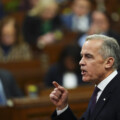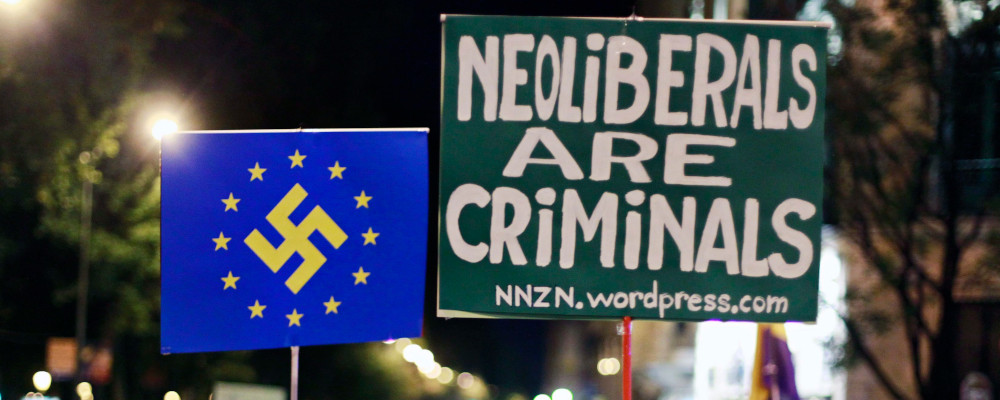We find ourselves in a strange ideological moment. Critics of neoliberalism are everywhere, and yet the case for a renewed neoliberalism grows stronger by the day.
To its critics, neoliberalism is a dead ideology. It exalts the free market, prioritizes growth over reducing inequality, and is skeptical about efforts to shape the economy. Faced with intensified great-power competition, climate risk, aging demographics, and myriad other challenges, a rising generation of “post-neoliberals” on the Left and the Right insist that we need a new paradigm—one that consents to a more active role for the state in our economy. Until recently, such ideas were mostly limited to outlier activists, politicians, and thinkers. Yet recent years have seen “post-neoliberalism” shift closer to the centre of the policy debate.
What is post-neoliberalism?
Defining post-neoliberalism is quite challenging. One of the inherent problems is that the definition of neoliberalism itself is contested. It’s mostly used as a pejorative term by left-wing critics to describe a caricatured form of “hyper-capitalism” or the “marketization” of all spheres of society. Few free-market proponents actually describe themselves as “neoliberals.”
A more charitable definition would be that neoliberalism represents the post-Keynesian economic paradigm which places an emphasis on free markets, including lower taxes, globalization and free trade, and a less active role for the state in the economy. As a set of assumptions and ideas about political economy, neoliberalism has held a dominant place in our public policy discourse across the western world for more than three decades.
It has always had its critics of course. Think for instance of the anti-globalization protests in Seattle or anti-austerity protests in Toronto or the Occupy Wall Street protests in New York. What’s changed in recent years, however, is that the opposition to neoliberalism has become more mainstream, intellectualized, and ideologically diverse. In the aftermath of the global financial crisis and the COVID-19 pandemic, a growing number of credible voices have not only come to challenge neoliberalism but are increasingly articulating a post-neoliberal vision.
A major speech in April 2023 by Jake Sullivan, President Biden’s national security adviser, is probably the highest-profile expression of the burgeoning movement to establish an alternative policy paradigm—and thus a sign that so-called “Bidenomics” is best understood as a post-neoliberal project. His widely-analysed remarks signaled that this trend had made the leap from the world of ideas into practical policymaking, including at the highest levels of the U.S. government.
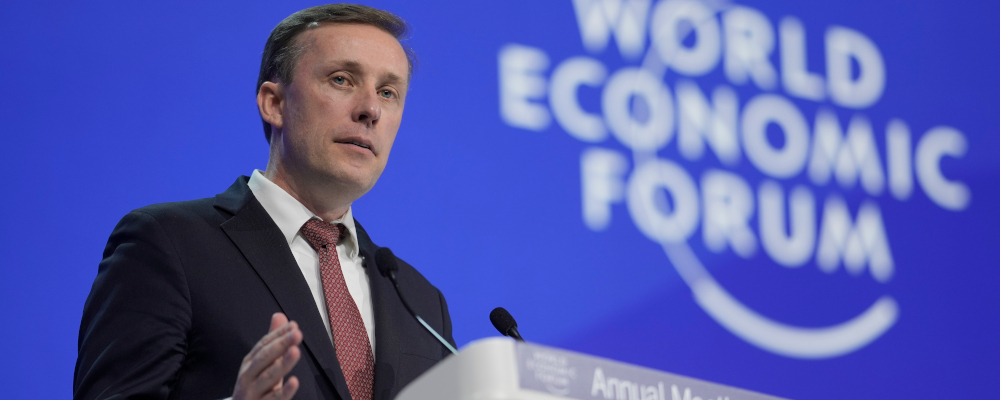
In Canada, we’ve seen similar ideological and political developments. As I’ve previously written for The Hub, the Trudeau government came to office with its own post-neoliberal predispositions. It started with a view that the neoliberal paradigm was too focused on economic efficiency and unconcerned with distributional outcomes. It has since expanded government transfers to individuals and households not merely as a backstop or supplement to market-based incomes but even as a substitute. Former Trudeau economic advisor Tyler Meredith set out in a thoughtful Hub essay last weekend that the growing share of household incomes derived from government transfers isn’t unintentional—“that’s the point” as he put it.
Yet if Sullivan and Meredith are advancing a highly debatable yet broadly coherent alternative to neoliberalism, they’re not necessarily representative of neoliberals more generally. A loose coalition that includes representatives from the socialist Left, the post-liberal Right, and various organizations and voices in between, the post-neoliberal movement (if one can call it that) often seems united more by its anti-establishment affect than by a coherent set of beliefs.
The various critiques of neoliberalism and underlying motivations behind a more interventionist policy agenda pull in different directions. One can find arguments about any number of issues including income inequality, climate change, anti-globalization, trade dependence on China, gender equality, and more.
Yet notwithstanding these competing claims and goals, the post-neoliberals broadly agree on two key points: first, the neoliberal era of market-oriented reform—including deregulation, tax cuts, and globalization—has produced deleterious outcomes; and second, a better alternative ultimately lies with the diminution of markets and an elevated role for the state in the economy and society.
As Sullivan’s speech and Meredith’s essay signify, proponents of neoliberalism would be wrong to dismiss the post-neoliberals as disorganized, radical, or unintelligible. There are thoughtful people among their ranks who are putting forward arguments and ideas that even the most ardent neoliberals ought to reckon with.
Post-neoliberalism on the Right
As alluded to earlier, the rise of post-neoliberalism isn’t merely a progressive phenomenon. There are also post-neoliberals on the Right including many who would self-describe as National Conservatives or NatCons. New think tanks like American Compass or journals like Compact Magazine have become hubs of post-neoliberal discussion and debate among this group of conservative intellectuals, pundits, and political actors.
Perhaps the most formidable post-neoliberal is Julius Krein, who first came to prominence as a critic of mainstream free-market conservatism from the nationalist Right. The quarterly journal that he launched in 2017, American Affairs, was an early catalyst for intellectual exchange about a post-neoliberal political and policy agenda.
Krein’s own brand of post-neoliberal thinking is more hard-headed than a lot of his fellow travelers. He is as concerned about strengthening industrial capacity in a new era of “geo-economics” as he is about income distribution or decarbonization goals or other political priorities that progressive-leaning post-neoliberals tend to champion.
His diagnosis of neoliberalism contains both insights and oversights. The oversights include some awkward facts for those in his intellectual camp: namely, America’s continued economic outperformance; the stability of income inequality (after taxes and transfers are taken into consideration) in the neoliberal era); and the fact that the increase in wealth inequality has been exaggerated or reflects conceptual confusion. None of these facts are necessarily fatal to the post-neoliberal critique—though they undoubtedly diminish its power.
There’s also a tendency to neglect the conditions of sclerosis and stagnation that contributed to the rise of neoliberalism itself. One can debate aspects of the neoliberal agenda or even argue that it has succumbed in certain cases—such as in the West’s failed strategy of engagement with China—to ideological excess. But it is revisionist history to downplay the extent to which the Keynesian or mixed economy model was by the mid-1970s malfunctioning according to its own terms. Though Krein and others ridicule partisans of neoliberalism for claiming that “there is no alternative,” these choices need to be understood as a coherent policy response to the economic stagnation brought about by the pathologies of Keynesian economics.

What do some post-neoliberals get right?
The strength of Krein’s analysis lies in two major developments that are at the heart of his case that the U.S. (and presumably Canada) should abandon neoliberalism in favour of a state-directed industrial strategy.
The first is what he characterizes as the rise of the “fissured economy” to describe the shift from the goods-producing economy to one rooted in intangible assets like algorithms, intellectual property, and software. The “Fordist economy,” as Krein defines the post-war industrial economy, was labour-intensive (with a high demand for mid-skilled labour), had large physical footprints, and was rooted in particular regions and communities. The “fissured economy”, by contrast, has relatively few employees, requires minimal capital or physical infrastructure, and mostly exists in the virtual world.
These observations are consistent with leading work by British policy scholars Stian Westlake and Jonathan Haskel on the rise of the “intangible economy” which refers to the growing economic importance of intangible assets and broadly conforms to Krein’s conception of the “fissured economy.” Westlake and Haskel argue that intangible assets have characteristics such as low-cost scalability that are sufficiently different from previous industrial models that our conventional policy framework is no longer adequate and requires modernization. As they’ve written:
There is something fundamentally different about intangible investment, and that understanding the steady move to intangible investment helps us understand some of the key issues facing us today: innovation and growth, inequality, the role of management, and financial and policy reform.
While Westlake and Haskel aren’t calling for an end to neoliberalism, they make a persuasive case that its policy toolkit needs to be updated—including intellectual property rules, capital financing, regulatory policy, and public R&D investments—to better reflect the unique particularities of intangible assets and their growing significance in the modern economy.
Notwithstanding his calls for a new post-neoliberal paradigm, Krein’s own policy prescriptions for the intangible economy similarly amount to building on neoliberalism rather than supplanting it. Whether the U.S. government should establish an Industrial Finance Corporation or expand pre-existing manufacturing initiatives or even impose tough new anti-tax avoidance measures on firms that offshore capital and labour should be the subject of spirited policy debate. But it’s a debate that’s situated comfortably within a neoliberal framework.
The same goes for Krein’s second argument: that the return of great-power competition in the realm of geopolitics has reinforced the interrelationship between military advantage and industrial capacity and requires a rethinking of neoliberalism’s principle of market neutrality. He rightly raises concerns about the erosion of America’s defence industrial base and its overdependence on China for critical supplies including biomedicine, rare earth minerals, and other strategic technologies.
It’s true that market forces alone won’t solve these problems. There’s a role for some combination of export controls, production subsidies, foreign investment restrictions, and other government policies to strengthen America’s defence industrial base, ensure a reliable supply of critical supplies, and reduce its dependence on China and other geopolitical rivals. National security must ultimately trump our fidelity to markets. (Adam Smith warned that “national defence is of much more importance than opulence.”)
This approach should involve careful policy thinking to define critical supplies, minimize economic distortions, and protect against rent seeking. But such a policymaking shift by no means requires a full repudiation of neoliberalism. There’s plenty of scope within a market-oriented policy framework to distinguish between a general deference to markets and the demands of national security.

The overarching point here is that while Krein’s argument that neoliberalism isn’t fully equipped to respond to the rise of the intangible economy and the reassertion of geo-economics is by and large convincing, his conclusion that a new policymaking paradigm must replace it is not.
It reflects a broader tendency among post-neoliberals in which one tends to find a sizeable gap between their conceptual commitments to a new intellectual paradigm and their policy prescriptions which generally amount to mere adjustments or updates to neoliberalism. Even the Hewlett Foundation’s influential manifesto on post-neoliberalism concedes that “no one believes we can or should abandon all the tenets of neoliberal thought, much less that we can live without an important role for free markets, which play an indispensable role in many contexts.”
Neoliberalism 2.0
The real issue therefore isn’t about the end of neoliberalism per se. Instead, it’s about how we can augment the neoliberal toolkit to reflect the evolving economic and geopolitical context. The goal in particular should be to better address the particularities of the intangible economy and the new geopolitical dynamics within neoliberalism rather than dispose of it altogether.
Moving in this synthesized direction will require the post-neoliberals to close the gap between their ambitious theorizing and narrower policy ideas. But it will also depend on neoliberals reckoning with the gap between their own understanding of the economy and the extent to which the intangible economy and the return of great-power competition have reshaped the policymaking context.
A reequipped neoliberalism—call it neoliberalism 2.0—would aim to preserve the broad-based benefits of free markets while at the same time being more responsive to today’s political economy. It would in effect more seriously grapple with the issues raised by Krein and others without disowning the ideas and institutions that have been fundamental sources of prosperity and wealth creation over the past three decades.
This final point cannot be overstated: many of today’s biggest political economy challenges—including housing affordability, energy abundance, biomedical progress, and even rising geopolitical tensions—call for a renewed focus on unlocking the supply side of the economy. It’s something of an irony: at the precise moment that the post-neoliberals seem to be gaining momentum, the most consequential reforms for improving living standards in what looks to be an era of tight labour markets and renewed inflation are, in fact, neoliberal.
Conservative Party leader Pierre Poilievre seems to instinctively understand this. In a moment of intellectual (and political) heterodoxy, he’s stood firmly in favour of a free-market orthodoxy that’s not only responsive to current economic challenges but has proven popular with a broad set of voters. Canadian-born, U.S.-based economics writer Jon Hartley has written that Poilievre’s form of neoliberalism may even be a “template for free-market conservatives” elsewhere.
Although it’s too early to know of the fecundity of Poilievre’s counter to the rise of post-neoliberalism, his successful political model is a reminder that we mustn’t throw the baby out with the proverbial bathwater. Neoliberalism should be reformed rather than replaced. We need it now as much as ever.
Recommended for You

Everyone’s managing decline. I’m exploring a run for Ontario Liberal leader to fight for growth
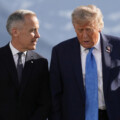
Carney is right about Canada’s place in the world—but words are not enough

Half of childless Canadian women don’t want kids, nearly a quarter in their 40s aren’t mothers: Statistics Canada
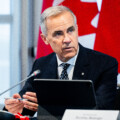
Stop calling Mark Carney a closet conservative
